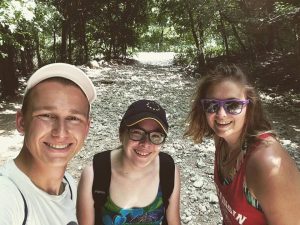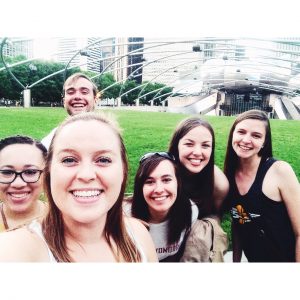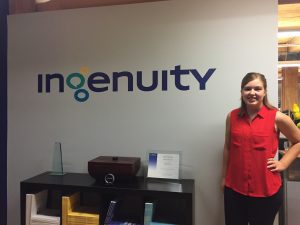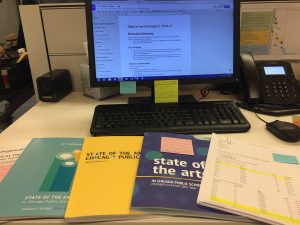Greetings!
My name is Katie Karstensen and this summer I have the opportunity to be working with ICDI, or the Interfaith Committee for Detained Immigrants. When people ask where ICDI is located it’s hard to give one central location because we are all over the Chicagoland area, and even outside of the state of Illinois in some of our ministries and work. To share what it has been like so far interning with ICDI and talking about all the different ministries we do, I thought it would be easiest to take you through my week and share some of the stories I have encountered.

Mondays
On Mondays you will find me near the South West suburbs of Chicago at our main office where our executive director, the two Sisters who have founded this organization, the fundraising team, and volunteers have their offices. I have done various tasks such as pull staples from religious materials so we may bring them into county jails, file different documents for immigrants we have helped over the years, alphabetize our donor files, and do an experiment of printing out prayers on different colored sheets of paper and testing which ones bleed color the most so that we may take the best ones into jails, where we have learned from conversations with detainees that they save the Sunday comics and separate prints into different colored ink paper, mix the paper with water, and use it to paint. Our goal is to give the prayer sheets they may be able to easily tear apart and mix with water to paint with, as paint is not available to them.
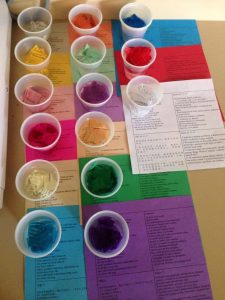
Tuesdays
On Tuesdays I am in a South suburb in Chicago working with one of our Post-Detention accompaniment ministries. ICDI offes short and long term support for immigrants who have been released from detention and have nowhere to live, and may be in the process of seeking asylum, or have been granted asylum and are waiting for other documents before being able to support themselves in this country. I get to work alongside with volunteers working to offer spiritual care, transportation, meals, clothing, and other necessities as needed. We have a house for men, a house for women and children, and a 24 hour on call service that will offer immediate services to those who have been released or are in need. My project at the women’s house this summer has been organizing all of the donations we receive, and I have been creating relationships with residents of the house and sharing stories and meals with one another.
Wednesdays
You will find me at the Kankakee County Jail on Wednesday mornings where we participate in pastoral care for those in detention. Detainees are allowed phone calls once a day they must pay for and allowed only one visit for no more than half an hour each week with family members or friends. Thanks to the hard work of the two sisters who founded this organization, and promoting that those in jail have the right to pastoral care, they have managed to get their way into jails so volunteers can visit face to face in the same room as detainees each week. ICDI visits detainees in Kenosha, McHenry, Dodge, and Kankakee County Jails, where we make 4,000 contact visits every year. I have met one on one with detainees from all over the world, some who were picked up by immigration upon entering the country, and those who have been in the country since they were a small child, have a career, multiple children, and are facing deportation and returning to country and culture they may know little to nothing about. This ministry is intense, but extremely necessary. Prisons are for long term sentences and normally have lots of programming, but county jails are for shorter terms and have little to no programming, but we have met with many people who have been in detention for months and months at a time. During our allotted thirty minutes to visit with detainees, we listen to their stories, speak of whatever they wish to talk about, offer a space for interfaith dialogue, and provide religious materials to them they are able to keep. An occurrence with someone at Kankakee that I have not been able to get out of my head and don’t know if I ever will was when one of the men I had finished talking to as he prepared to leave and I shook his hand and thanked him for coming to sit with me, said “Your group of volunteers that meet with us are the only human hands that touch us without wearing latex gloves.” Never had I thought about one simple handshake having the potential to mean so much to a person.
Thursdays
On this day I visit two different Immigration Courts in downtown Chicago where “court watchers” go into immigration cases and sit in the courtroom in solidarity and support of those who have hearings. Final hearings are usually the only hearings in which detainees physically come into the court, otherwise there is a television screen set up in the courtroom and that connects with detention centers via televideo. Everyone in the court can see the television, but the detainee on the other side can only see the judge, and hears all that is said by the judge, attorney, government representative, and translator through one microphone. And if the detainee speaks a different language than English or whatever languages the translator may be able to interpret, the judge calls an over the phone translation service and the phone translator is projected over a loudspeaker, which I cannot imagine from the detainees perspective is a very effective way of communication when dealing with such sensitive issues. And all that is interpreted are the words addressed back and forth between the judge and the detainee, not what the government or attorney have to say.
I have found my time in court to not offer much humanity for those who go through this court system, and am thankful ICDI encourages volunteers to enter court systems and offer some humanity on behalf of those waiting to hear about their immigration or asylum status.
Fridays
On Fridays you will find a group of passionate people holding a prayer vigil on the steps of the ICE Office in Broadview, Illinois. This is where all the ministry of ICDI began, when Sister Pat and Sister Jo Ann saw every Friday at 7am immigrants being put into busses to be taken to O’Hare and deported back to their countries of origin. Every Friday, rain or shine, summer and winter, all year round people gather in this place to pray and send good thoughts for those being deported. The first Friday of every month we have an Interfaith prayer vigil where reflections of Christian, Jewish, Muslim, and Buddhist traditions are shared among one another, and the other Fridays of the month we pray the Catholic Rosary together. This week I was able to share the Christian reflection as a part of our Interfaith service:
https://youtu.be/fP8f4qKgrW8
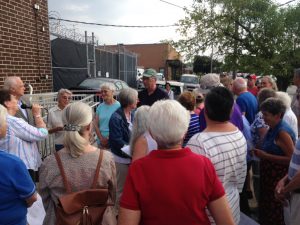
Saturdays
Every other Saturday I volunteer with our Unaccompanied Children’s Interfaith Ministry, where we provide spiritual care to migrant children who are in this country without a parent or guardian. Many of these children are fleeing the most violent areas on earth. We meet with these children to provide spiritual accompaniment through prayer, songs, arts and crafts, other creative activities across many language barriers based on interfaith themes such as hope, thanksgiving, and strength for the journey they are on. In conversation with these children, it does not feel as if I am talking to a child, but rather someone much wiser and older, and who has lived through much more than I ever hope to go through or experience. These children have been through much, but they are resilient and they are strong.
On a Saturday I was not visiting our unaccompanied children’s home I had the opportunity to represent ICDI at the Evangelical Lutheran Church of America’s convention in Tinley Park where I was able to share our ministry with the wider church.
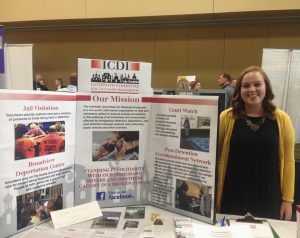
Going into this internship I admit I did not have a large amount of knowledge about the immigration system in the United States. After working with this wonderful organization for a month now I cannot believe how much I have learned, how much there still is to learn, and there are many steps to take until this is truly a humane system.
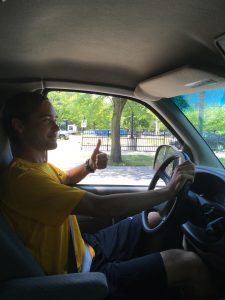 on, but if you wait long enough it will probably come back on again”. And thus begins, and usually ends, the day at Heartland Alliance’s Youth and Family Service’s Summer Program.
on, but if you wait long enough it will probably come back on again”. And thus begins, and usually ends, the day at Heartland Alliance’s Youth and Family Service’s Summer Program.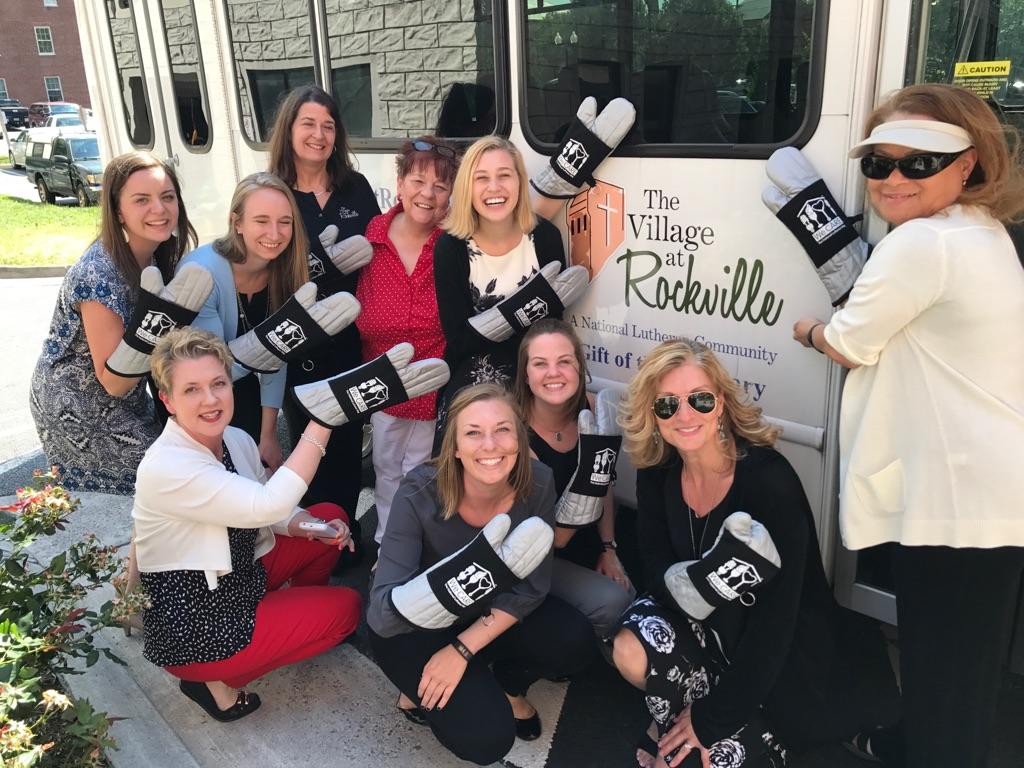
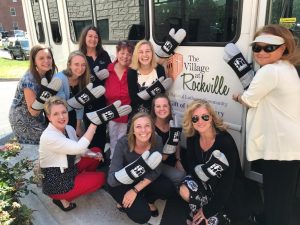

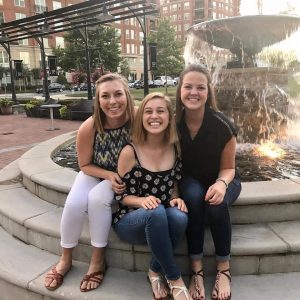
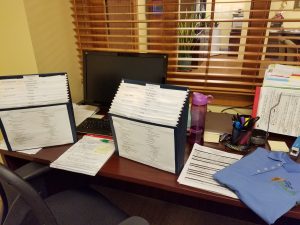
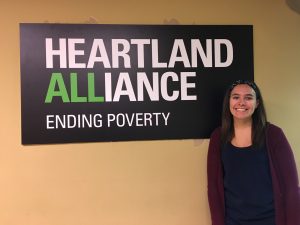
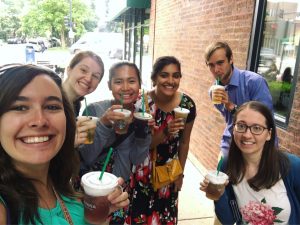
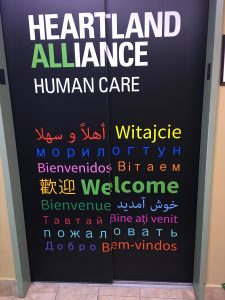 All of this will go with me even after I leave the office for the last time on Friday. My CAPS experience is occurring in the middle of my greatest life transition yet: In May, I graduated college, and said goodbye to Valpo as well as my friends, mentors, commitments and activities – really my whole way of life – there. In two weeks I leave the 60-mile radius of the Midwest I’ve lived in my entire life move to Denver, Colorado, a place where I’ve only spent about 36 hours total and know virtually no one. As of last week, my family officially completed their relocation to Charlotte, North Carolina, where my dad was transferred for work, so I also said goodbye to my childhood home, my hometown, and my old friends and neighbors. While navigating this huge life change in the midst of an experience where I must reflect on my calling and purpose in society, I have had another question thrown into the mix: who am I? When all of your roots are pulled from the ground – all of the places and activities that up until this point in your life made you who you are – what is your identity? I wish I had the answer for you. I do, however, have one valuable insight I want to share:
All of this will go with me even after I leave the office for the last time on Friday. My CAPS experience is occurring in the middle of my greatest life transition yet: In May, I graduated college, and said goodbye to Valpo as well as my friends, mentors, commitments and activities – really my whole way of life – there. In two weeks I leave the 60-mile radius of the Midwest I’ve lived in my entire life move to Denver, Colorado, a place where I’ve only spent about 36 hours total and know virtually no one. As of last week, my family officially completed their relocation to Charlotte, North Carolina, where my dad was transferred for work, so I also said goodbye to my childhood home, my hometown, and my old friends and neighbors. While navigating this huge life change in the midst of an experience where I must reflect on my calling and purpose in society, I have had another question thrown into the mix: who am I? When all of your roots are pulled from the ground – all of the places and activities that up until this point in your life made you who you are – what is your identity? I wish I had the answer for you. I do, however, have one valuable insight I want to share:
